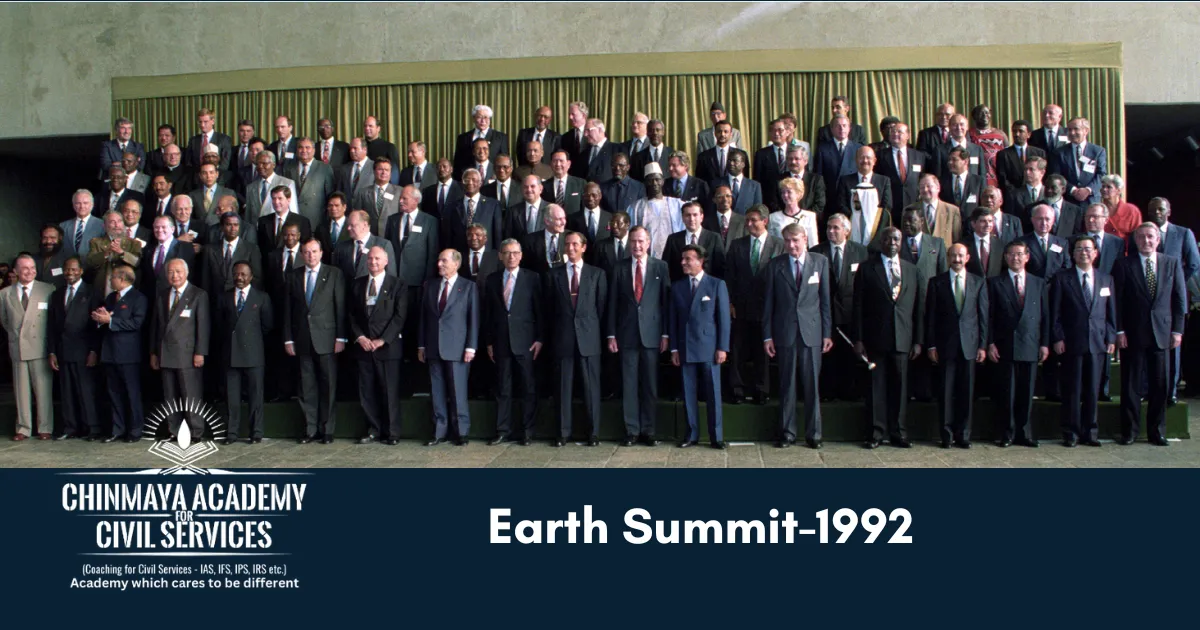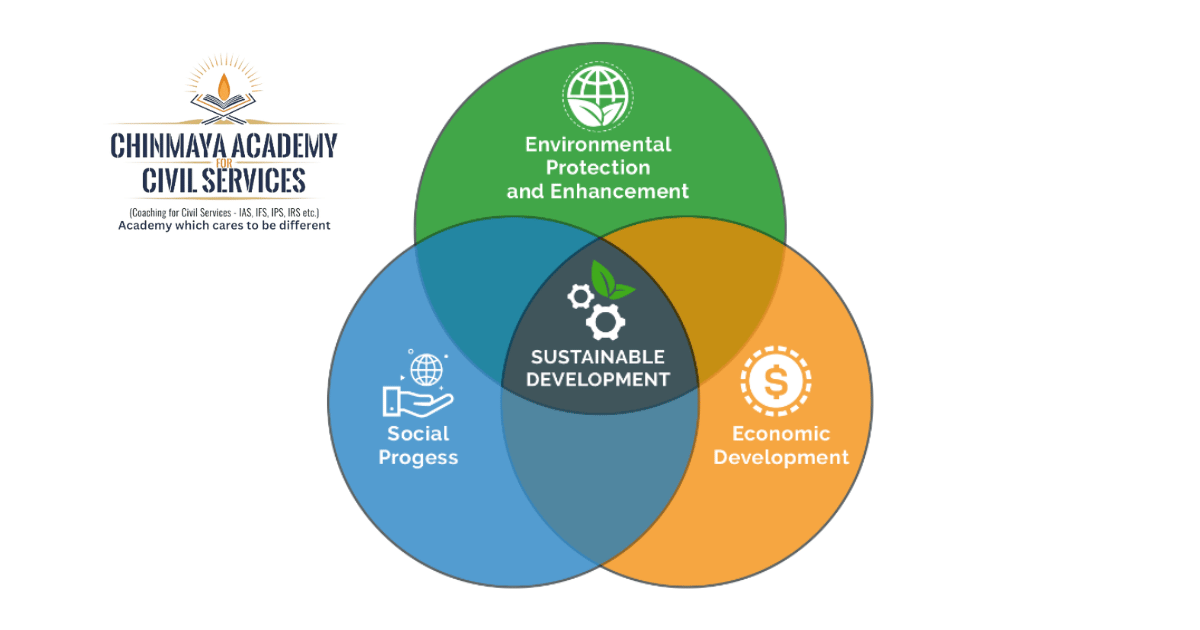
The Earth Summit, often referred to as the United Nations Conference on Environment and Development (UNCED), took place in Rio de Janeiro, Brazil, from June 3–14, 1992. This international conference brought together political leaders, diplomats, scientists, media representatives, and non-governmental organisations (NGOs) from 179 countries in an attempt to focus on the effects of human socioeconomic activities on the environment.
- t was held in conjunction with the 20th anniversary of the first Human Environment Conference, which took place in Stockholm, Sweden, in 1972.
- Concurrently, an unparalleled gathering of non-governmental organisations (NGOs) took place in Rio de Janeiro under the name ‘Global Forum’.
- These delegates showcased their individual perspectives on the future of the global environment and socio-economic advancement.
The Rio de Janeiro conference brought to light the interdependence and mutual evolution of various social, economic, and environmental aspects, as well as the necessity of taking action in other areas in order to sustain success in one over time.
- The principal aim of the Rio ‘Earth Summit’ was to formulate a comprehensive agenda and a novel framework for global action on environmental and development concerns
- Which would aid in directing international collaboration and development strategies in the twenty-first century.
The ‘Earth Summit’ determines
- The local, national, regional, or international level, sustainable development was an achievable objective for all people on the planet.
- It also acknowledged that an integrated strategy is feasible and that addressing our needs while integrating and balancing economic, social, and environmental concerns is essential to maintaining human life on Earth.
- The conference acknowledged the need for fresh perspectives on how we produce and consume, live and work, and make decisions in order to integrate and balance the economic, social, and environmental components.
- This idea was groundbreaking at the time, and it generated a passionate discussion about how governments should interact with their constituents as well as within themselves to ensure sustainability for development.

Agenda 21
- A bold plan of action that calls for new ways to invest in the future in order to achieve overall sustainable development in the 21st century, was one of the main outcomes of the UNCED Conference.
- Its suggestions included fresh approaches to teaching, new strategies for protecting the environment, and new approaches to taking part in a sustainable economy
Earth Summit- achievements
- the Rio Declaration and its 27 universal principles
- the United Nations Framework Convention on Climate Change (UNFCCC)
- the Convention on Biological Diversity
- the Declaration on the principles of forest management.
The ‘Earth Summit’ also led to the creation of the Commission on Sustainable Development, the holding of first world conference on the sustainable development of small island developing States in 1994, and negotiations for the establishment of the agreement on straddling stocks and highly migratory fish stocks.
 Chinmaya IAS Academy – Current Affairs Chinmaya IAS Academy – Current Affairs
Chinmaya IAS Academy – Current Affairs Chinmaya IAS Academy – Current Affairs
